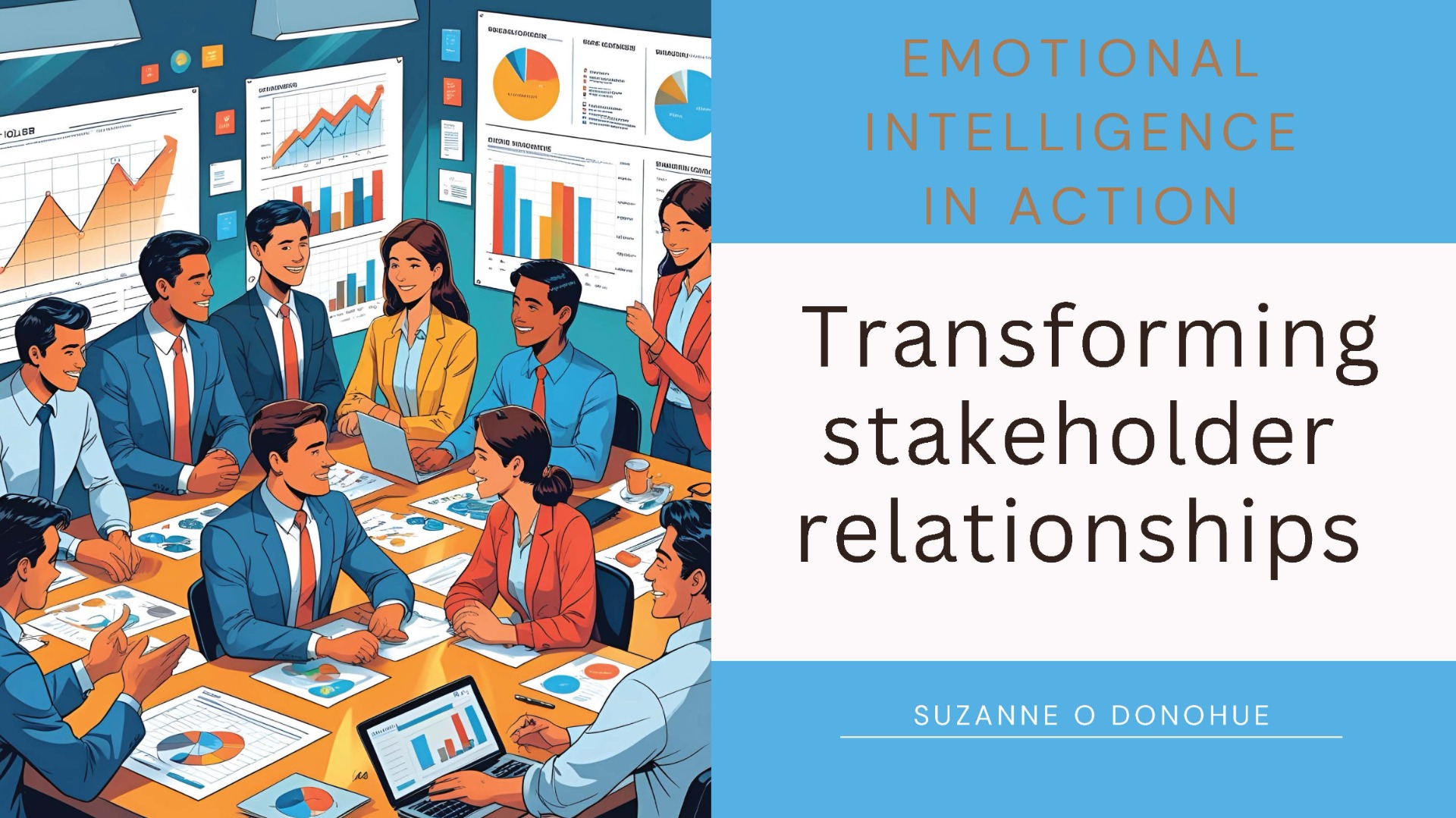
BE THE FIRST TO KNOW
Subscribe to the SPOCE newsletter to receive timely updates about new courses, venues and discounts!

Project and change delivery shines when we go beyond simply identifying, qualifying and managing stakeholders to genuinely understanding them.
In the eBook 'Empathy and Emotional Intelligence for Project Managers', empathy is described as:
It might seem overly simple but in the stressful, time critical world of project delivery where timelines and budgets are tight, teams are often borrowed from elsewhere in the business and sometimes team leaders have to manage people more senior than themselves, empathy becomes an important leadership tool.
Empathy allows project leaders to:
• Understand stakeholders: What their motivations and fears are.
• Navigate resistance with sensitivity rather than control
• Communicate in ways that help people to connect to and CARE about the change.
• Build trust that continues beyond the start date of the project (and help the project become a success).
As the old adage goes: 'You can lead a horse to water but you cannot make it drink!'
That’s the job of EI. When used effectively, empathy turns stakeholder interactions from transactional to transformational.
We often hear of ‘Stakeholder Management’ when considering projects and change. But managing people, especially influential and often more senior ones, isn't about management and control—it's about relationship-building.
Empathy changes the approach from “What does this stakeholder want from the project?” to “What does this stakeholder care about, and why?”
That mindset change creates space for dialogue, not just reporting.
In the eBook ‘Emotional Intelligence for Project Managers’ we are given some real world scenarios to think about. Scheduling a face to face meeting with a disengaged stakeholder for example, can 'solve' our problem rather than reporting it and escalating up the chain. Getting to the crux of the problem, which may not even be related to the project, taking on board their concerns. For example in one of the cases revealed in the book, the stakeholder felt their concerns were being overlooked in favour of other departments. The PM identified this issue, spent time understanding how the stakeholder felt and made changes as a result. After the conversation the stakeholder became a new advocate for the change as they felt heard and understood.
Empathy isn’t abstract—it can be practised and refined. Here are a few techniques covered in the book that if practiced and refined, can dramatically affect stakeholder results:
• Active Listening: Don’t just hear concerns—listen for meaning, emotion, and context. Reflect back what you hear to build connection and clarity.
• Perspective-Taking: Step into the stakeholder’s shoes. How might this change impact their role, team, or reputation?
• Emotional Awareness: Be attuned to the non-verbal cues. Sometimes what’s not said is just as important as what is.
• Compassionate Action: Use insights to adjust plans, communication styles, or engagement strategies in a way that supports stakeholder needs.
Empathy is especially crucial when dealing with change. Change often provokes fear, uncertainty, or resistance. Don’t think that because in your comms meeting, your stakeholders nodded and agreed, that they are not resisting the change when you are not there. Hidden concerns need to be identified and taken seriously.
In Chapter 12 of the book, trust is highlighted as the currency of effective stakeholder engagement. And trust, as we know, is built not by ticking boxes, but by demonstrating consistent, compassionate understanding.
Important to note is that empathy is not a replacement for your processes. Stakeholder registers or influence analyses ect, very much have their place. EI supports and strengthens these processes. A stakeholder map tells you 'who' to talk to. Empathy helps you determine 'how'.
Projects are delivered by people, for people—and it’s empathy that makes those relationships thrive. Its no longer enough to be a master at the processes.
If you're ready to take stakeholder engagement beyond documentation and into deeper connection, the 'Empathy and emotional intelligence' eBook, supporting our traditional project and change approaches is your perfect companion.
Because when stakeholders feel heard, understood, and valued—they become your greatest allies.
The eBook from from which this information derives is available on Amazon Kindle and Audible. For a very limited time it will be availble for free. Click the link below to see if the promotion period is still running. The book is titled:
Ready to level up your project management skills on the go?
Discover our expert-led audiobook packed with insights, real-world examples, and practical strategies you can apply immediately.
Call 01202 736 373 or email sales@spoce.com for a promotion code that gives you free access to this book.
Want to explore PRINCE2®, APM or Change Management qualifications with EI in mind? Call 01202 736 373
Comments